How Rejuvi Tattoo Removal Compares to Laser Tattoo Removal
How Rejuvi Tattoo Removal Compares to Laser Tattoo Removal
Outline
- Introduction
- Brief on the rise of tattoo removal demand
- Overview of Rejuvi and Laser Tattoo Removal Methods
- Understanding Tattoo Removal Techniques
- Importance of tattoo removal technology
- Common reasons for tattoo removal
- What is Rejuvi Tattoo Removal?
- Origin and development of Rejuvi technique
- How Rejuvi tattoo removal works
- What is Laser Tattoo Removal?
- History and evolution of laser tattoo technology
- Process of laser tattoo removal
- Comparing Rejuvi and Laser Tattoo Removal
- Key differences in technology
- Variations in procedure
- Effectiveness of Rejuvi Tattoo Removal
- Success rates
- Types of tattoos it works best on
- Effectiveness of Laser Tattoo Removal
- Success rates
- Tattoo types most compatible
- Pain Levels: Rejuvi vs Laser
- Pain scale for Rejuvi tattoo removal
- Pain scale for laser tattoo removal
- Side Effects and Risks of Rejuvi Tattoo Removal
- Common side effects
- Long-term risks
- Side Effects and Risks of Laser Tattoo Removal
- Usual side effects
- Potential long-term consequences
- Cost Comparison
- Cost of Rejuvi sessions
- Cost of laser sessions
- Time and Number of Sessions
- Typical number of sessions for Rejuvi
- Typical number of sessions for laser
- Skin Types and Suitability
- Skin types best suited for Rejuvi
- Skin types most compatible with laser
- Pros and Cons Summary
- Benefits of Rejuvi tattoo removal
- Advantages and disadvantages of laser tattoo removal
- Conclusion
- Summary of which method is best for different needs
- FAQs
- Which method is quicker?
- Is one method less painful?
- How long should I wait between sessions?
- Will my skin look the same after removal?
- Are both methods safe for sensitive skin?

Introduction
As tattoos become more popular, so does the need for effective removal options. Many people want their tattoos removed because of a lifestyle change, career shift, or simply a change of heart. Laser tattoo removal was traditionally the go-to option, but newer methods like Rejuvi tattoo removal are becoming popular. So, how do these two methods compare? Let’s dive into the details.
Understanding Tattoo Removal Techniques
Removing a tattoo is more complex than getting one. Tattoo ink penetrates deep into the skin, making it difficult to erase without proper technology. While some people seek removal for personal reasons, others do it for professional or aesthetic purposes.
What is Rejuvi Tattoo Removal?
Rejuvi tattoo removal was developed as an alternative to traditional methods. The process involves injecting a specially formulated cream into the tattooed skin. This cream bonds with the ink particles and helps push them to the skin’s surface, forming a scab and eventually falling off with the ink.
What is Laser Tattoo Removal?
On the other hand, laser tattoo removal uses focused laser energy to break up the ink particles in the skin. Over time, the body’s immune system clears these fragmented ink particles, fading the tattoo gradually with each session. Laser technology has advanced significantly, with multiple types of lasers tailored for different ink colours and skin types.
Comparing Rejuvi and Laser Tattoo Removal
Technology Differences
- Rejuvi: Utilises a chemical process to draw ink out of the skin.
- Laser: Uses intense pulsed light to shatter ink particles.
Procedure Variations
- Rejuvi: The cream is injected into the skin, leading to the ink being expelled through scabbing.
- Laser: Breaks down ink, allowing the body to absorb and eliminate it.
Effectiveness of Rejuvi Tattoo Removal
Rejuvi removal can be effective, especially for dark and stubborn ink colours. Rejuvi also works well for delicate tattoos and specific colours.
Effectiveness of Laser Tattoo Removal
Laser removal is effective, especially with modern lasers that adjust to various ink colours. Darker inks are usually easier to remove than lighter ones.
Pain Levels: Rejuvi vs Laser
Rejuvi Pain Scale
Rejuvi removal is generally less painful than laser since it doesn’t rely on intense heat. That said, the injected cream can cause some discomfort.
Laser Pain Scale
Laser tattoo removal can be quite painful. The heat of the laser can create a stinging sensation, often likened to snapping a rubber band on the skin.
Side Effects and Risks of Rejuvi Tattoo Removal
Rejuvi removal may cause scabbing, which can result in scarring if the scabs are prematurely disturbed. Other possible side effects include redness and mild irritation.
Side Effects and Risks of Laser Tattoo Removal
Laser removal often leads to temporary redness, swelling, and blistering. There’s a slight risk of pigmentation changes, especially in people with darker skin tones.
Cost Comparison
Rejuvi Costs
Rejuvi tattoo removal typically costs between £80-£200 per session, depending on the tattoo’s size and ink depth.
Laser Costs
Laser sessions can cost between £ 100 and £500, depending on the type of laser used and the complexity of the tattoo.
Time and Number of Sessions
Rejuvi Sessions
Rejuvi requires fewer sessions, often between 2 and 6, as it can more effectively target larger ink particles.
Laser Sessions
Laser tattoo removal usually takes more sessions (often 5-10 or more), depending on the tattoo’s complexity and ink colour.
Skin Types and Suitability
Rejuvi Skin Compatibility
Rejuvi is generally suitable for all skin types, though it may cause more scarring on sensitive skin.
Laser Skin Compatibility
Laser removal is typically safe, but those with darker skin tones should take precautions due to the risk of pigmentation changes.
Pros and Cons Summary
Benefits of Rejuvi Tattoo Removal
- Less painful than laser
- Fewer sessions needed
- Effective for dark inks
Advantages and Disadvantages of Laser Tattoo Removal
- Works well with various ink colours
- Potentially more painful
- Longer treatment period
Conclusion
Both Rejuvi and laser tattoo removal have their unique benefits and downsides. Rejuvi may be preferable if you’re looking for a faster, potentially less painful experience, especially for dark inks. Laser removal remains a solid choice for those with tattoos in multiple colours. Ultimately, the choice depends on personal preference, skin type, and tattoo specifics.
FAQs – How Rejuvi Tattoo Removal Compares to Laser Tattoo Removal
1. Which method is quicker?
Rejuvi is generally quicker, requiring fewer sessions than laser removal.
2. Is one method less painful?
Yes, Rejuvi tends to be less painful than laser removal.
3. How long should I wait between sessions?
Typically, a few weeks between sessions is recommended for both methods.
4. Will my skin look the same after removal?
Some scarring or pigment change may occur, depending on your skin type and the method used.
5. Are both methods safe for sensitive skin?
Yes, but those with sensitive skin should consult a specialist to choose the best option for their skin type.
Micropigmentation training by the industry expert with 35+ years’ experience.
How Rejuvi Tattoo Removal Compares to Laser Tattoo Removal.
Links To Our UK Services
- Homepage
- SPMU Training
- Foundation SPMU Training
- Tattoo Removals Training
- Eyebrow Tattoo Training
- Lip Blush Training
- Medical Micropigmentation Training
- Scalp Micropigmentation Training
- Areola Tattoo Training
- Scar Removal Training
- Skin Rejuvenation Training
- All Training Courses
GET IN TOUCH
If you would like to enquire about one of our training courses or treatments, message us using the floating widget (bottom right of the page), and we will contact you to discuss the next step.
Prefer to discuss using WhatsApp? Please get in touch with Candice using the number below.
We support the NHS.
How Rejuvi Tattoo Removal Compares to Laser Tattoo Removal.

